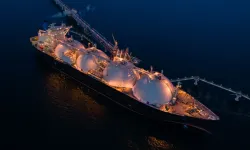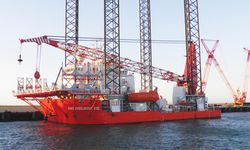The Gulf state aims to tap into the growing demand from China and other Asian countries, anticipating an 85% increase in its overall production capacity by the end of the decade.
This move comes as Qatar's energy minister, Saad Sherida Al-Kaabi, expresses confidence in the continued demand for LNG, especially in Asia, where countries are shifting from coal to reduce carbon emissions.
The surge in LNG demand, driven by efforts to replace lost Russian pipeline volumes in Europe and a global shift from coal to gas, has prompted Qatar to position itself strategically in the market.
Shell's recent report forecasts a 50% growth in global LNG demand by 2040, with China and other developing Asian nations leading the transition.
Qatar, already a major global LNG supplier, plans to increase its production capacity from the current 77 million tonnes per annum (mtpa) to 142 mtpa by the end of the decade. The expansion follows a 14% increase in Qatar's gas reserves to 2 quadrillion cubic feet, primarily attributed to new discoveries in the North Field gasfield.
Qatar has already secured significant LNG supply deals with China, aligning with the nation's focus on the Asian market.
These expansion plans coincide with the US pausing approvals for new LNG terminals, as President Biden evaluates the impact of LNG exports on energy costs, national security, and the environment.






